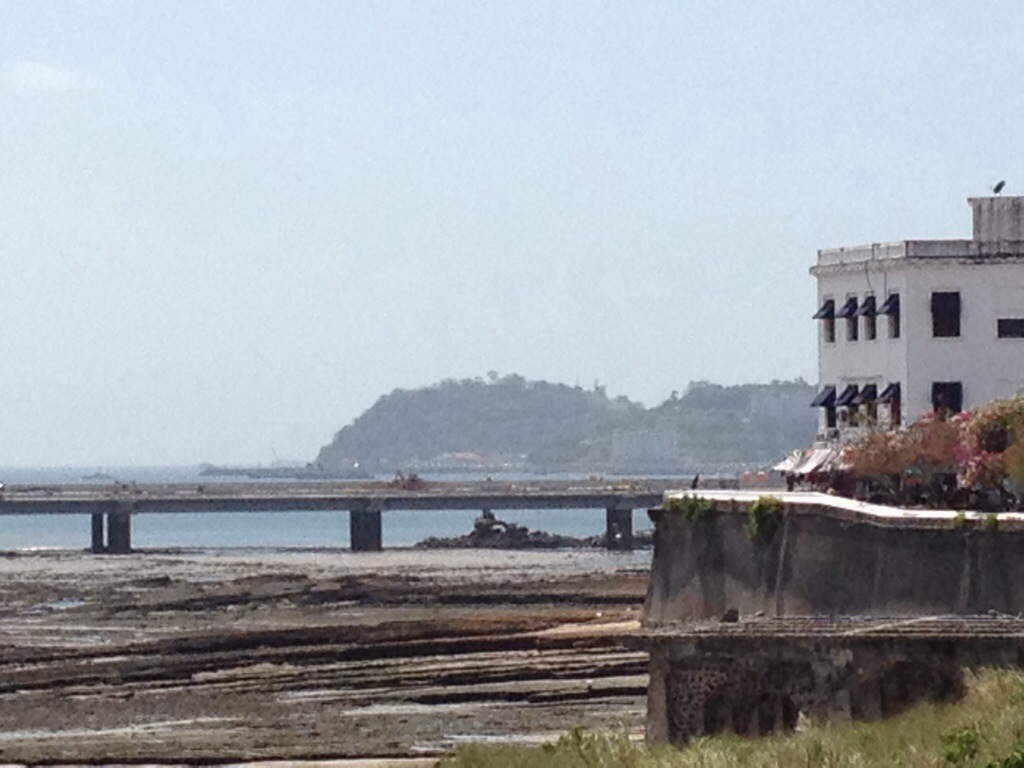Dear Friends of Patrimonio Panamá:
Let me share with you a few words of Miguel de Unamuno who liked me and with which I agree, also. Miguel, in time, is dedicated to the philosophy and thinking disturbing questions.
Without discussing - idle-whether or not the discussion I was twenty years ago, It is indisputable, I think, the fact that I am today comes, by continuous series of states of consciousness, of my body that was twenty years ago. Memory is the basis of individual personality, as well as tradition is the collective personality of a people. It lives in the memory and the memory, and our spiritual life is not, at bottom, but the effort of our memory to persevere, hope to be done, the efforts of our past to seize the future.
This is a shrill perogrullería, this I know; but it is to, rolling on the world, one that seems men feel themselves is. One of my best friends, with whom I have walked every day for many years integers, every time I spoke to him this feeling of personality, told me: "Well I do not feel myself; I do not know what that is ".
On one occasion, this friend that I allude me dijo: "I would be Guy" (here a name), and told: that's what I never quite understand, you want to be any other. Will be another, is a desire to stop being one which is. I mean I want you to have what someone else has, their wealth or knowledge; but be another, is the thing I did not explain. (De Unamuno 1912: 12, 13)
There are several things that caught my attention in these reflections written by Miguel little over a hundred years ago, but in a different context that is as universal human. That is why I said that Michael wrote “in time”, for though it is true that is deceased, the expression of his written word has aspects of immortality. He implicitly says that there is continuing, and therefore the memory is the basis of individual personality. It is a very good idea, similarly the more because the traditions are the basis of the collective personality of a people. Twenty ago, Forty-six, hundred, hundred eleven or four hundred ninety-five years, if you, We were one or many different peoples under the name Panama. What is being Panamanian, after all? All aspects of our history belong to us; make us what we are today with all the strengths and weaknesses of our relations in society. Although fragment us want those ethnic and sociocultural aspects of our preference (because we are so mixed up that we like to choose us, relegating other aspects of our composition to the background in a paradox), legally we are still all, Panamanians. All aspects of our history belong to us. We were masters, subordinates, invaders, Defenders, slaves, kidnapped, immigrants, displaced, exiles, sovereign. Where is “our spiritual life”, “the effort of our memory to persevere, hope to be done, the efforts of our past to seize the future”? Since my particular optical, the effort of our memory for persevering could not be anything other than the transmission of our history and our heritage extension, to future generations.
If we find Panamanians “not feel themselves” It is our own collective guilt; not enhance our history as something alive and real consequences in this; for not protecting our material witnesses, which are the vestiges, landmarks. I emphasize that they do not relate only to those declared by law… but even these have been able to protect the. What was the historical testimony of the Old Town of Panama before the construction of the marine viaduct Cinta Costera Phase 3? His close relationship with its marine environment was essential to understand that it was a port city, logistics node first Spanish empire and after versions continued until they Panama Canal Zone, created in 1904, absorbed the port, replacing the port of Balboa. The city, which was destroyed in 1671 and whose importance was rebuilt in 1673, remained, persisted and grew up on the same premise: be a logistical node communications and inter-oceanic and intercontinental. The barrier between the old city and the sea that gave birth asphyxia and suppresses the universal meaning, reached in time to be the province of all mankind.
Some argue that the new viaduct is cute, because they do not understand themselves as Panamanians, I guess. No "feel" the core meaning of the term. Is almost forced to think that this is a product of the education system, but that would be selfish, because for generations it was excellent and former Panamanian students are those living.
Sometimes, some told me they wanted to be the Dubai of the Americas, and that this was necessary to have as many tapes as possible coastal. Here I identified fully with Miguel, because I did not understand that someone wants to stop "being" (as people) what he is; Do his past aside to "be" another. Not even talked about having things "like Dubai», but "be the Dubai of the Americas». Will not know 'being' Panamanian? This is something that I do not understand, and seems to be the crux of the biggest problem. Obviously, who built the viaduct had personal and economic reasons; but, What Panamanians celebrate?
Perhaps time for some answers to all this perogrullería dear readers, when, Miguel, No longer here.
Regards,
Katti Osorio Ugarte, Ph.D.

Viaduct Marine Coastal Belt 3 and the wall of Panama, March 2014.
-o-o-o-o-o-o-
REFERENCES
De Unamuno, Miguel (1912). The Tragic Sense of Life. Renaissance, Madrid, Spain.

Excellent, deep and full force